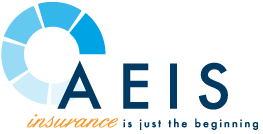Can an HSA Be Used For Dental Expenses?
Written by: Ron Bland, GBDS
Table of Contents
- Can an HSA Be Used For Dental?
- Qualifying Dental Expenses
- Orthodontics and an HSA
- Non-Qualifying Expenses
- Dental Implants and an HSA
- What to Know About Using An HSA For Dental
- How To Pay Your Dental Bills with an HSA
- How AEIS Can Help
Health Savings Accounts (HSA) are proving invaluable for helping cover employee medical expenses while offering tax advantages to both the employer and employee. An HSA is particularly valuable in covering expenses that may not be covered by a company's healthcare program. These could include deductibles, copayments, prescriptions, and more.
While most understand the value of these types of accounts in covering out of pocket expenses associated with healthcare, there are questions many have in regard to HSA and dental expenses. Can an HSA, for example, be used for dental expenses? What procedures qualify for payment? Are orthodontics and implants covered? What should you know about HSA and dental expenses and how do you get dental expenses paid through an HSA?
Can an HSA Be Used For Dental?
You will probably be glad to know that, yes, an HSA can be used to pay eligible dental expenses. Of course, the key words here are "eligible” and “qualifying expenses.” What are these “qualifying” dental expenses, and which procedures are non-qualifying? In many cases, the deciding factor is what is determined as corrective or preventive and what is considered "cosmetic".

We're here to help.
Contact us today.
What to Know About Using An HSA For Dental
Perhaps the best piece of advice about using an HSA for dental surgery is to become as familiar as possible with your plan before planning a procedure. This can prevent being surprised by unknown costs. Your provider should be able to provide a complete listing of covered dental and other medical expenses that can be used as a guideline. They may make this available either online or through their benefits booklet. You can also always ask for a pre-treatment estimate or a predetermination of benefits to review what your out of pocket costs for any given procedure will be.
Be aware that if you use HSA funds for a non-qualifying expense, you may be subject to taxes on any funds used for the non-qualifying expense. Those under 65 may face a significant 20% penalty in such circumstances, so due diligence is key. That 20% penalty is no longer in effect after age 65.
One of the key issues that can cause confusion is whether or not a dental procedure is “cosmetic." Of course, for the patient, appearance is critical. However, if the procedure is not considered a medical necessity, it may not be considered a qualified expense with which you can apply your HSA. That being said, HSA has proven to be very flexible in the types of procedures that are qualified expenses.
While a Health Savings Account is not a healthcare plan, it can be vital in ensuring that out-of-pocket costs are being taken care of. In many cases, these out-of-pocket costs can be significant.
How To Pay Your Dental Bills with an HSA
Paying your dental bills through an HSA can depend on your healthcare specialist and provider. In some cases, the dental office will assist in filing your claim. Many providers also offer online systems for filing claims. Once you are comfortable that your bills are covered, you should initiate the claim filing with your dentist or provider.
This is one reason working with a professional benefits team like those at
AEIS can help. Providing coverage is one thing. Making sure employees can take the full value of those benefits is another. We work hand in hand with our clients and their employees in making sure programs like an HSA are administered efficiently and effectively.
How AEIS Can Help
AEIS (Advanced Estate and Insurance Services, Inc.) specializes in serving as an advocate, advisor, and strategist for small to medium businesses with 2 to 500 employees. If you are in search of expertise in selecting, optimizing, executing, and maintaining a benefits package for your company, we invite you to connect with us.
Disclaimer: Any information related to compliance, laws and regulations, or other subject matters in this blog is intended to be informational and does not constitute legal advice regarding any specific situation. The content of this blog is based on the most up-to-date information that was available on the date it was published and could be subject to change. Should you require further assistance or legal advice, please consult a licensed attorney.
About The Author:
Ronald L. Bland
President
Ron, a top insurance professional in the Bay Area since 1985, excels in creating cost-effective, comprehensive plans for business owners. His achievements include top-of-the-table status in the Million Dollar Round Table and speaking at the 2021 Top of the Table Conference. A Bay Area native, Ron graduated with honors from San Francisco State University and lives in San Mateo with his wife, Elaina, and their two children.




